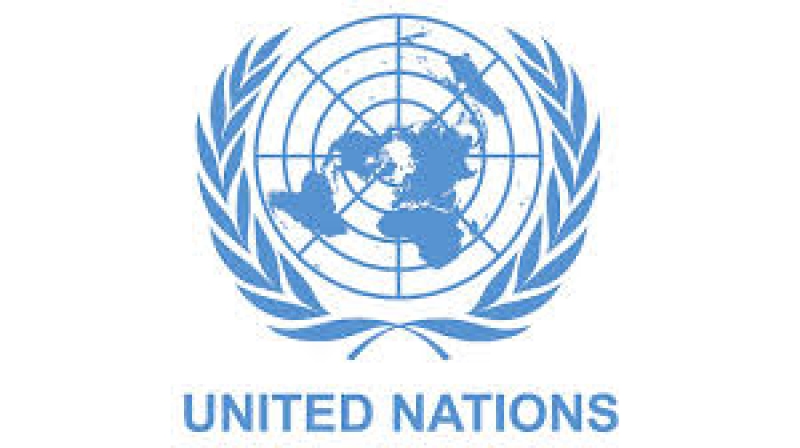- Guterres Urges Leaders to Act as UNGA Week Begins |
- BNP to go door to door for hearts and votes |
- Chittagong port tariffs increased up to 50 per cent |
- Rising Heat Cost Bangladesh $1.8 Billion in 2024 |
- Stocks extend gains; turnover drops in Dhaka, rises in Ctg |
Over 400,000 children in Lebanon displaced in 3 weeks by war: UN

United.Nations logo
BEIRUT, Oct 15 (AP/UNB) — More than 400,000 children in Lebanon have been displaced in the past three weeks, a top official with the U.N. children’s agency said Monday, warning of a “lost generation” in the small country grappling with multiple crises and now in the middle of war.
Israel has escalated its campaign against the Lebanon-based Hezbollah militant group, including launching a ground invasion, after a year of exchanges of fire during its war with Hamas in Gaza.
The fighting in Lebanon has driven 1.2 million people from their homes, most of them fleeing to Beirut and elsewhere in the north over the past three weeks since the escalation.
Ted Chaiban, UNICEF's deputy executive director for humanitarian actions, has visited schools that have been turned into shelters to host displaced families.
“What struck me is that this war is three weeks old and so many children have been affected,” Chaiban told The Associated Press in Beirut.
“As we sit here today, 1.2 million children are deprived of education. Their public schools have either been rendered inaccessible, have been damaged by the war or are being used as shelters. The last thing this country needs, in addition to everything else it has gone through, is the risk of a lost generation.”
While some Lebanese private schools are still operating, the public school system has been badly affected by the war, along with the country's most vulnerable people such as Palestinian and Syrian refugees.
″What I’m worried about is that we have hundreds of thousands of Lebanese, Syrian, Palestinian children that are at risk of losing their learning," Chaiban said.
More than 2,300 people in Lebanon have been killed in Israeli strikes, nearly 75% of them over the last month, according to the Health Ministry. In the last three weeks, more than 100 children were killed and over 800 were wounded, Chaiban said.
He said displaced children are crammed into overcrowded shelters where three or four families can live in a classroom separated by a plastic sheet, and where 1,000 people can share 12 toilets. Not all of them work.
Many displaced families found have set up tents along roads or on public beaches.
Most displaced children have experienced so much violence, including the sounds of shelling or gunshots, that they cower at any loud noise, Chaiban said.
Then there is “evacuation orders upon evacuation orders. We’re at the beginning, and already there’s been a profound impact," he said.
The escalation has also put over 100 primary health care facilities out of service, while 12 hospitals are either no longer working or partially functional.
Water infrastructure has also come under attack. In the last three weeks, 26 water stations providing water to almost 350,000 people have been damaged, Chaiban said. UNICEF is working with local authorities to repair them.
He called for civilian infrastructure to be protected. And he appealed for a cease-fire in Lebanon and in Gaza, saying there needs to be political will and a realization that the conflict cannot be resolved through military means.
“What we must do is make sure that this stops, that this madness stops, that there’s a cease-fire before we get to the kind of destruction and pain and suffering and death that we’ve seen in Gaza,” Chaiban said.
With so many needs, he said, the emergency response appeal for $108 million in Lebanon has only been 8% funded three weeks into the escalation.

